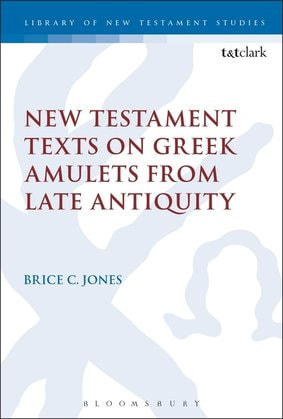 P.Monts. Roca 4.57 P.Monts. Roca 4.57 Methodius of Olympus was a Christian bishop who died as a martyr in c. 311 C.E. Unfortunately, we know very little about Methodius. Most of what we do know comes from a brief biographical account in Jerome’s On Illustrious Men, which was composed at the end of the fourth century. Methodius was mainly known as an antagonist of Origen. In particular, he had a problem with Origen’s doctrine of the resurrection of the body, which he rejects outright in his treatise On the Resurrection. Methodius wrote several important works (see Roger Pearse’s list here), but almost all of these come down to us in fragmentary form. The only complete work of Methodius that we possess is his Symposium or Banquet—a treatise in praise of voluntary virginity. Until quite recently, the earliest manuscript of this text was an eleventh century codex known as Patmiacus Graecus 202, which is housed in the Monastery of St. John the Theologian on the island of Patmos. But a remarkable discovery has recently been made in the Montserrat Abbey in Spain. Sofia Torallas Tovar and Klaas A. Worp, who have been working on the manuscript collection in the Montserrat Abbey for many years, have just published a fragment of Methodius’ Symposium that they date on palaeographical grounds to the fifth-sixth century—about 450 years earlier than the Patmos codex mentioned above. (On another recent, important discovery by Tovar and Worp, see here.) Published as P.Monts. Roca 4.57, this fragment is the first attestation of a work of Methodius from Egypt. It is a narrow strip of parchment, with thirty partial lines preserved on the hair side (see image of fragment at right). The text on this side of the fragment comes from Oratio 8:16.72-73, 3:14.35-40, 8.60-61, and 9.18-19 (in that order). The flesh side contains thirty-five partial lines of text unrelated to the Methodian text. This is an unidentified Christian text with “Gnomic” sentiments, as the authors explain. In addition to the wonderful fact that we now have a significantly earlier manuscript witness of Methodius’ text, there is also another remarkable feature in the new manuscript: a previously unattested saying about the Nile. In lines 5-8, the manuscript reads: “The rise of the Nile is life and joy for the families” ἡ ἀνάβα̣σ̣ε̣ι̣[ς] τοῦ Νείλου̣ ζω̣ή̣ ἐστι κ̣[αὶ] χαρὰ ἑστία[ις] As the authors note, this saying does not occur in Methodius. And indeed, it does not fit the immediate context. Where it comes from is a mystery, but the saying is nonetheless very interesting. All in all, this is a fascinating discovery for scholars of Early Christianity and we commend the authors for their editorial work in making this text available to the world.
5 Comments
Roger Pearse
5/3/2015 08:39:52 pm
Wow!!! Thank you so much for this!!! I shall reblog it.
Reply
5/4/2015 01:50:14 am
You bet, Roger. I figured you would like the news, given your post on Methodius' works (which is a helpful resource, by the way).
Reply
Roger Pearse
5/4/2015 04:12:01 am
You're very kind! I think I might try writing to a couple of people and see if I can hire anyone...
Reply
5/4/2015 04:14:25 am
Sofía Torallas Tovar and Klaas A. Worp, ed., with the collaboration of Alberto Nodar and María Victoria Spottorno, _Greek Papyri from Montserrat_ (P.Monts. Roca IV) (Barcelona: 2014), no. 57.
Reply
Roger Pearse
5/4/2015 05:25:45 am
Excellent - thank you!!
Reply
Your comment will be posted after it is approved.
Leave a Reply. |
Archives
December 2020
Categories
All
|
